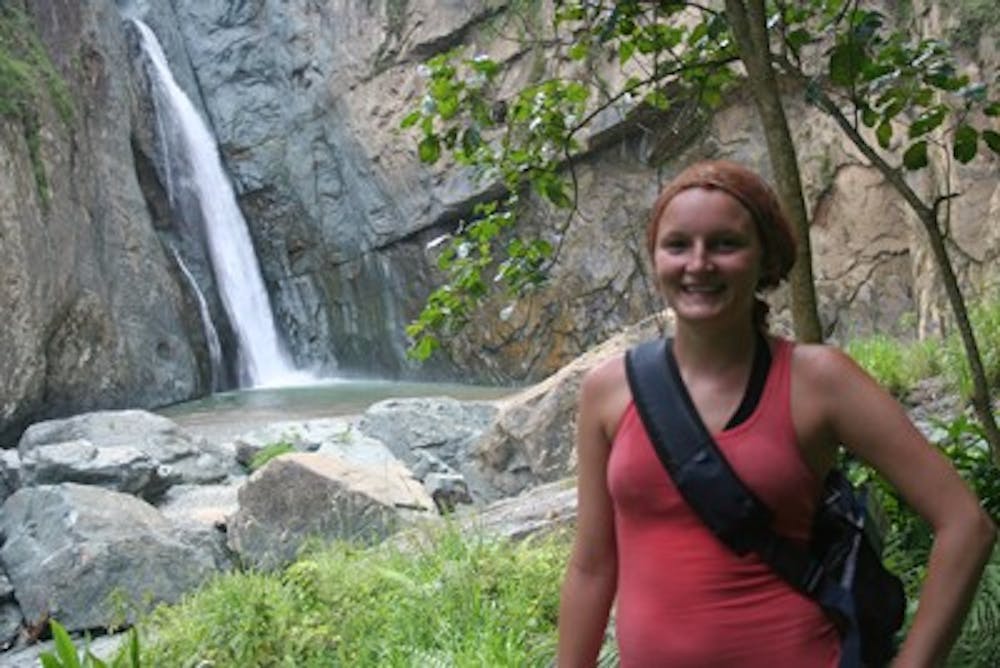In the past 2 1/2 weeks, I’ve been traveling all around the Dominican Republic studying folk medicine and culture (and Spanish, to boot). I’ve seen both northern and southern coasts of the island, accidentally went into a prostitution bar and out-bargained some of the stingiest souvenir shops. While I initially thought that two months in the Dominican Republic would be a tropical vacation, the massive poverty and lack of regulated sanitation quickly proved me wrong.
The DR, as my friends and I affectionately call it, has a national poverty level at 42.2 percent and the average annual yearly income is barely over $7,000 per year. I live in Jarabacoa, endearingly called “the Alps of the Caribbean.” I find this hard to believe, because there is less chocolate and snow involved than I care for, but my city is home to some of the wealthiest and poorest Dominicans in the world.
Nestled in between the Cordillera Central mountain range, vacation mansions and wooden shacks overpopulate the valley. The Dominican Republic is fatefully dependent on the economy of the United States, and the decline into recession is apparent all over the country.
But the rapidly declining economic situation doesn’t stop Jarabacoa’s wealthier, younger crowd from going out every weekend. Although naught in comparison to Santo Domingo’s clubbers, Jarabacoa’s finest spend hours getting dressed in the least amount of clothes possible, caking on pounds of makeup like their favorite "telenovela" star and gossiping about that skanky girl they saw the night before.
My program director is convinced that “merengue” leads to teenage pregnancy, and I believe it. Girls as young as 14 go to the dance clubs (even though they’re legally not supposed to) and dress as though they’re headed to a family duel on “Jerry Springer.” Merengue is a type of Latin dance that requires both dance partners to move their hips very fast – nearly gyrating – and move in two-step patterns in a tight circular pattern. And as if the incalculable sexuality of merengue isn’t enough, if you aren’t dressed like a homewrecker no one will dance with you at the clubs. This is one of our favorite defense mechanisms.
Another favorite pastime of the men in Jarabacoa is to sit on their porches and yell “piropos” at every woman who walks by, regardless of age or color (race, by the way, is still a huge issue in this country). Piropos are quick phrases that a man will shout out at a woman as she passes by, complimenting her figure, walk, looks and so on. Sometimes they are sexually explicit and obscene, and most women choose to ignore them. In the past two weeks, I’ve been called “rubita” (I have red hair, not blonde), “diablo rojo” (at least they got the “red” part right) and other things not suitable for print. On the occasion, a high school-aged kid will yell something in broken English and has no idea what he just said, so I’ll fire something back at him in my horrible Midwestern accent and he’ll stare at me blankly. In my mind, it’s a small step for gender equality and satisfaction.
No matter how crude I find some aspects of the culture, Dominicans are a beautiful group of people with an even more impressive attribute of hospitality. My host family gave me the best bedroom, adjusted to my vegetarian diet and cooks the most delicious foods for me. All my neighbors greet me with a hearty “Hola!” every day on my walk to class, and the shop owners are finally starting to realize that they can’t rip me off with the “precio Americano” (the “American price.")
Most people thought I was crazy to study medicine in a Third World, economically developing nation, but if you balance out the negatives with the positives, I couldn’t see myself anywhere else.
Something to write home about
A Hoosier in the 'Alps of the Caribbean'

Get stories like this in your inbox
Subscribe





